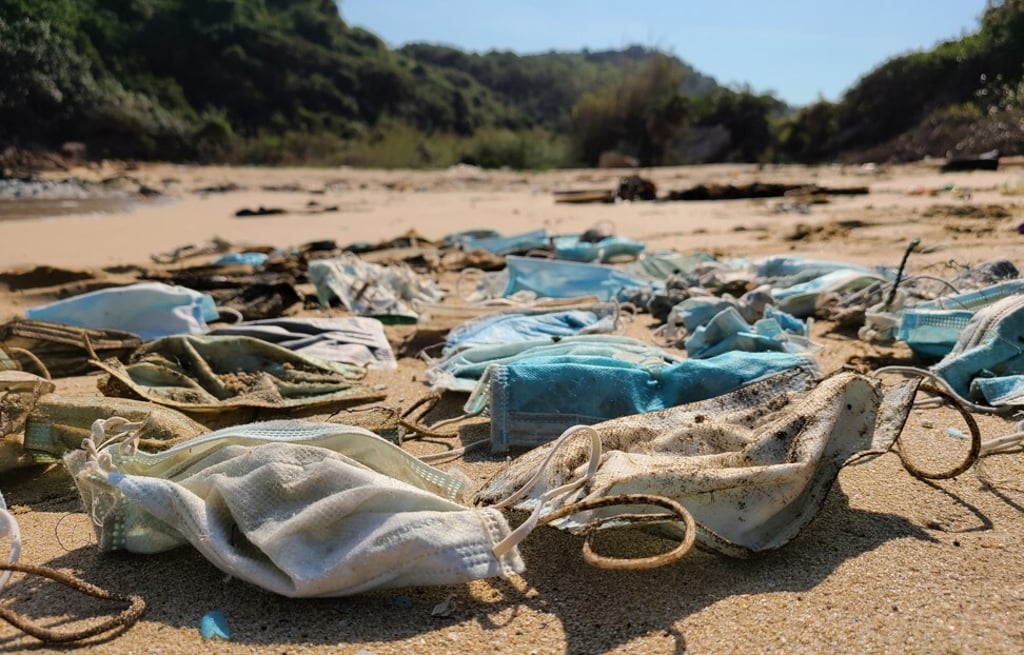Coronavirus face masks that end up in the sea will take 450 years to degrade, marine conservation group warns
- Discarded surgical face masks will add to the mountain of plastic we disgorge into the oceans every year that poisons the fish we eat, conservationists say
- OceansAsia urges people to switch to reusable masks, but in Hong Kong that could be a tough ask: city has low adoption of fashionable, home-made and cloth masks

Wearing a face mask has become part of our daily routine, one of the preventive measures people have adopted worldwide to help slow the spread of the coronavirus.
But what may be good for our health may not be so healthy for the planet. A Hong Kong-based marine conservation organisation says single-use surgical masks pose a huge environmental threat, estimating 1.56 billion will have entered the oceans in 2020.
In a report released this week, OceansAsia says discarded face masks will result in an additional 4,680 to 6,240 metric tonnes of marine plastic pollution. Titled “Masks on the Beach: The Impact of Covid-19 on Marine Plastic Pollution” the report says masks will take up to 450 years to break down, and have a negative impact on marine wildlife and ecosystems.
The report used a global production estimate of 52 billion masks being made in 2020, a conservative loss rate of three per cent, and the average weight of three to four grams for a single-use polypropylene surgical face mask to arrive at the estimate.

“The 1.56 billion face masks that will likely enter our oceans in 2020 are just the tip of the iceberg,” says Teale Phelps Bondaroff, director of research for OceansAsia, and lead author of the report.